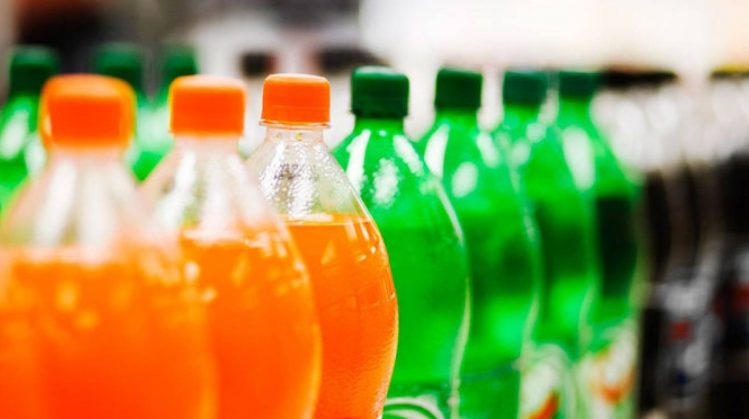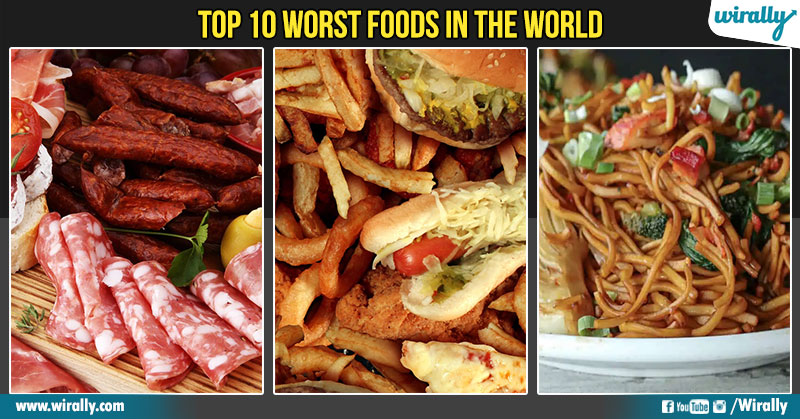TOP 10 WORST FOODS IN THE WORLD
Maintaining optimal health and wellbeing requires eating a diet that is well-balanced. Unfortunately, there are a plethora of highly processed, artificially-flavoured, and nutrient-deficient foods available in today’s food market. It’s not always the case that what tastes delicious is also healthy. It is in your best benefit, nevertheless, to restrain your impulses and consume these foods in moderation. The majority of these items not only have negligible to no nutritional value, but they can also accumulate toxins that are harmful to your general health. The top 10 worst foods in the world are examined in this article; they should be avoided in order to encourage a better lifestyle as they are linked to a number of health problems.
1. Sugary Beverages:
One of the main global causes of obesity and diabetes is sugar. It also causes a great deal of stress to your pancreas, liver, and digestive tract. It increases your risk of developing a cold, the flu, hormone imbalances, or even depression. Fruit juices, energy drinks, and sodas with added sugar frequently have excessive sugar content. These beverages raise the risk of developing chronic illnesses like diabetes and heart disease, weight gain, and dental damage. A healthy option is to choose water, herbal tea, or naturally fruit-infused water.

Processed meats include high levels of nitrates and salt, both of which are detrimental to your health. Furthermore, during digestion, nitrates change into nitrites, which can then produce nitrosamine—a highly dangerous toxin that causes cancer. Preservatives, bad fats, and salt are commonly included in processed meats including sausages, hot dogs, and deli meats. Frequent ingestion of these meats has been associated with a higher risk of heart disease, cancer, and type 2 diabetes. Instead, go for poultry, lean meats, or plant-based substitutes.
Foods containing artificial trans fats and oils that have been partially hydrogenated have to be completely avoided. Baked foods, microwave popcorn, and processed snacks are prominent sources of these fats. They increase the risk of heart disease by increasing levels of bad cholesterol (LDL) and lowering levels of good cholesterol (HDL).
Vegetable shortening and margarine are popular artificial butter replacements for spreading and baking. High concentrations of trans fats and other dangerous chemicals are included in these items. These lipids are very dangerous and cannot be metabolised by your body. They weaken the walls of your blood vessels, cause inflammation to grow, and elevate harmful cholesterol levels. Choose, in moderation, healthier fats such as real butter or olive oil.
5. Fast Food:
Fast food is well known for having a lot of sodium, bad fats, and calories. Fast food eating on a regular basis has been linked to high blood pressure, obesity, and other chronic illnesses. Making meals from scratch with fresh ingredients is a more satisfying and healthful choice.
While whole foods and refined grains are important components of a well-balanced diet, trying to consume whole foods is preferable. Refined carbohydrates, which are frequently found in processed foods like white bread, spaghetti, and muffins, cause your blood sugar levels to jump quickly because of how quickly your body breaks them down. This may make you more susceptible to type 2 diabetes. Consider including more whole grains in your diet, such as muesli, barley, brown rice, buckwheat and millet. This will reduce your desire for unhealthy foods on its own.
Aspartame and sucralose are examples of artificial sweeteners that provide low-calorie alternatives; nevertheless, research indicates that using them may raise the risk of weight gain, metabolic problems, and increased sweet tooth. It’s recommended to use natural sweeteners like stevia and to use moderation. The FDA deems the following five artificial sweeteners—also known as non-nutritive sweeteners—safe for consumption by humans: aspartame, neotame, saccharin, sucralose, and acesulfame potassium. Not only can some sugar replacements physically leave a terrible taste in your mouth, but that’s not their only drawback. We actually don’t know how terrible artificial sweeteners are for us, even if we adore them because they are calorie-free or low-calorie.
Deep-fried meals, such as French fries, fried chicken, and fried snacks are frequently cooked at high temperatures, which cause the development of hazardous chemicals, and they are high in unhealthy fats. Frequent consumption raises the risk of heart disease, type 2 diabetes, and obesity. Not only can eating too many french fries make you gain weight, but they are also associated with a higher risk of stroke and several malignancies, including breast, esophageal, head and neck, lung, pancreatic, and prostate cancers. Better options include baked, steamed, or grilled foods.
Snacks that are heavily processed, such as chips, crackers, and cookies are frequently laden with added sugars, harmful fats, artificial flavours, and preservatives. Potato chips are also heavy in sodium due to their excessive salt coating in addition to their high fat content. This can raise the risk of heart attacks and strokes by causing problems with blood pressure and cholesterol. Frequent consumption is linked to nutritional deficiencies, weight gain, and chronic illnesses. Choose whole food snacks such as vegetable sticks, fruits, or nuts.
10. Sugary Cereals:
A lot of morning cereals that are touted as healthy choices frequently have a lot of added sugar. While these cereals provide you a rapid energy boost in the morning, they can deprive you of vital nutrients and leave you feeling hungry later in the day. Choose whole grain cereals with low added sugar content or give homemade alternatives, such as overnight oats, some thought.
While the odd indulgence is OK, ingesting the top 10 worst foods listed here on a frequent basis might have a negative impact on your health. Making fresh, whole, and minimally processed meals a priority is essential to preserving a balanced diet and lowering the dangers connected to these poor choices. Recall that even minor dietary adjustments can have big effects on your general health.

